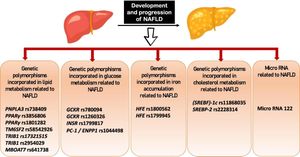Pope Francis remains hospitalized at Gemelli Hospital in Rome, where he is being treated for pneumonia affecting both lungs, as well as other health complications stemming from his age and medical history. At 88 years old, the Pope has faced significant challenges during his current hospitalization, which marked the 11th day since his admission on February 14, the longest stay since his election as pontiff in 2013.
Despite the grave nature of his condition, the Holy See reported, "The night went well, the Pope slept and is resting." This statement reflects the Vatican's careful monitoring of his health as he continues to receive high-flow oxygen to assist with his breathing.
"The complexity of the clinical picture necessitates remaining cautious about the prognosis," the Vatican's health bulletin stated, indicating the serious nature of the Pope's illness. His treatment has included medications to address related complications, including anemia and low platelet count, which have remained stable following recent blood transfusions.
Medical experts have expressed concern about the potential for septicemia, which can arise as a serious complication from pneumonia. "The situation has become more concerning due to his previous health history," noted virologist Fabrizio Pregliasco, highlighting the additional challenges the Pope faces due to his age and existing health conditions.
Throughout the Pope's hospital stay, prayers have been organized across Rome, Italy, and globally. Many religious leaders and politicians alike have expressed their hopes for his recovery, with hundreds of messages flooding social media platforms, encapsulating the deep concern for his well-being. Images of the Pope alone on Saint Peter's Square during the COVID-19 pandemic have evoked nostalgia and solidarity among believers during this difficult time.
The Pope's health issues have revived discussions on potential succession within the Catholic Church. While the Vatican has been reticent to discuss worst-case scenarios openly—given the Pope is still alive—there are established protocols should the need arise for leadership transition. Historically, direct plans for succession are not explicitly outlined, leading to uncertainty around canonical provisions concerning the capacity of the pontiff.
"If the Pope loses his ability to discern, nothing is clearly provided for," stated Rik Torfs, canon law expert, stressing the lack of clarity within existing laws for such matters. He elaborated on the situation, emphasizing how it complicates the governance of the Church.
The urgency surrounding the Pope's health has sparked speculation about whether he might choose to resign, mirroring the decision of his predecessor Pope Benedict XVI. While canon 332 permits resignation, the pontiff must be able to express this intention clearly; both the mental and physical condition are pivotal factors. Currently, there is no indication of any plans from Pope Francis to step down.
Should the Pope choose to resign or pass away during this uncertain time, established protocols dictate the immediate response. The period of



